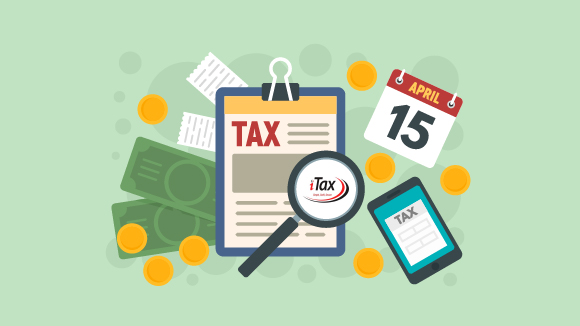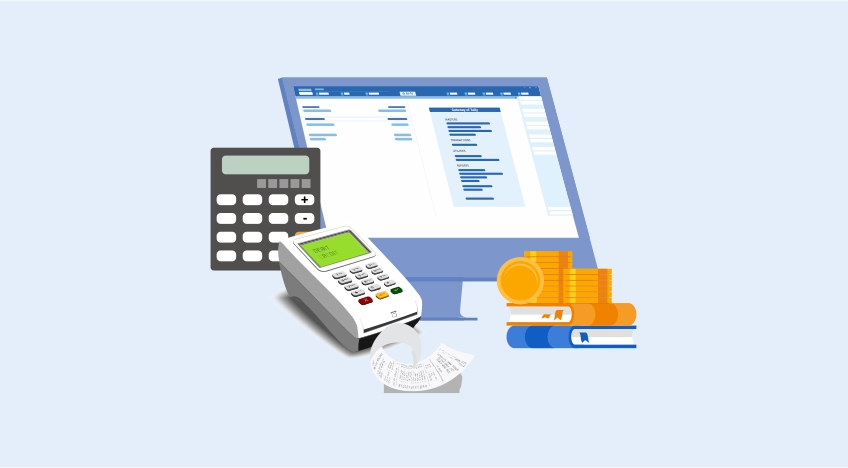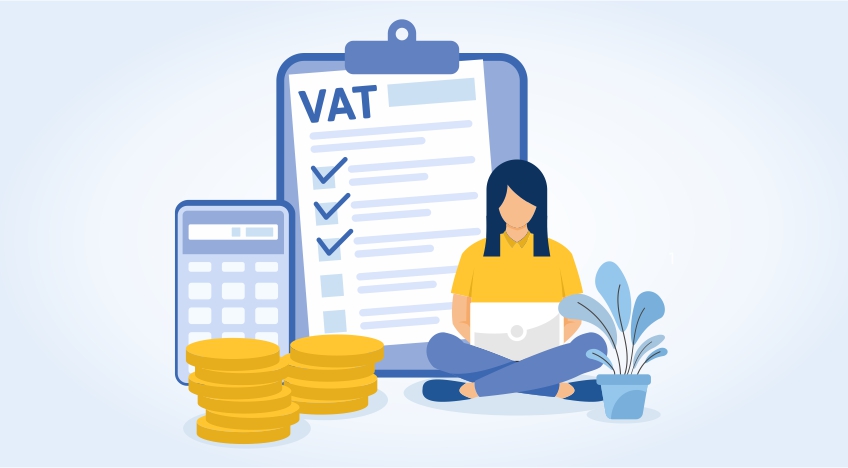- What is an electronic tax invoice?
- What is the new Tax Invoice Management System?
- What is the due date for implementing e-invoicing in Kenya?
- Business to whom electronic tax invoice will be applicable?
- Businesses that are exempted from e-invoice
- What are the different types of ETR devices?
What is an electronic tax invoice?
Electronic tax invoice, commonly referred to as e-invoicing, is a system in which all the invoices are electronically validated, signed, and details are transmitted to the tax portal on a real-time basis.
Under the new e-invoicing system, business/accounting software used by businesses can be integrated with new electronic tax registers (Type C ETR), known as a control unit, which validates the accuracy of the invoice and electronically signs the invoice, and then transmits the details to tax portal. Once the invoice is successfully validated, a unique control unit invoice number is generated for each invoice by ETR. Along with the invoice number, each invoice is added with a QR code and control unit serial number. This process is collectively called e-invoicing or electronic tax invoice in Kenya.
With new electronic tax invoice, all registered businesses are mandated to issue the invoice only after the ETR validates the details.
What is the new Tax Invoice Management System (TIMS)
The Tax Invoice Management System (TIMS) is an upgraded version of the previous Electronic Tax Register (ETR).
It enables real-time standardization, authentication, and transmission of electronic invoices from traders to the Kenya Revenue Authority (KRA). TIMS seamlessly integrates with iTax, as well as trader systems like Enterprise Resource Planning (ERP) and Point of Sale (POS).
The new TIMS system enhances tax compliance by simplifying the tax return filing process and ensuring uniformity in tax invoices and receipts.
What is the due date for implementing e-Invoicing in Kenya?
According to the recent update by the Kenya Revenue Authority (KRA), from October 1st, 2022, all VAT-registered business in Kenya have been liable to issue invoices that adhere to the e-invoicing regulations.
Type of business to whom electronic tax invoice will be applicable?
The new electronic tax invoice will be applicable to all businesses registered under VAT. If your business is registered under VAT, it is mandatory to issue e-invoices to your customers.
Businesses that are exempted from e-invoice
The Kenya Revenue Authority (KRA) exempts certain businesses from paying VAT, and these businesses are not required to apply for electronic tax invoices. Some of these exempted businesses include businesses run by Kenyans outside the Kenyan jurisdiction and non-profit organizations.
What are the different types of ETR devices?
Recognizing that businesses utilize various methods and systems for generating invoices, whether manually or using software systems such as ERP, POS, and accounting software, KRA has introduced different types of Electronic Tax Register devices to cater to the specific needs of businesses.
|
Type of ETR |
Business Suitability |
|
Type A |
Small business entities whose invoicing is still done manually. Also suitable for business making sales on the move, e.g. van sales since the ETR is portable |
|
Type B |
Retail outlet and Shops. This comes with One ETR connects with many cashier tills and One ETR to One Cashier till |
|
Type C |
Businesses that have automated their invoicing using ERP, Accounting software etc. |
|
Type D |
This comes with ability of connect with all invoicing system used such as ERP, ERP etc. Thus, suitable for all types of businesses. |
What are the requirements of the new electronic tax invoice system?
Under the new Tax Invoice Management System (TIMS), businesses are required to utilize a compliant tax register (ETR). For instance, if you use an ERP/Accounting system, you must incorporate a 'Type C' ETR device that integrates with your software. Each invoice generated will undergo validation and signing by the ETR, resulting in a unique invoice identifier number and a QR code. The invoice will then be printed and issued to the customer. Additionally, the ETR is designed to transmit invoice details to the KRA portal in near real-time.
What all invoice details the new e-invoice ETR will validate?
To comply with the e-invoicing requirements, business owners should use a compliant tax register that validates the following details:
- The tax rates
- The taxable value
- The total gross amount
- The total tax
Frequently asked questions (FAQs): Electronic Tax Invoice in Kenya
1. What are the requirements for ETR in Kenya
A complying ETR should be capable of the following:
- Before sending the tax invoice to the customer, double-check the invoice data (tax rate, taxable value, total tax, and total gross amount).
- To send verified tax invoices to KRA in real time or near real time through the internet.
- To create credit and debit notes that refer to the original tax invoice
- To generate the essential elements of a legitimate Electronic Tax Invoice (Buyer Pin, Control Unit Serial Number, Control Unit Invoice Number, and QR code).
2. What is the difference between invoice and electronic invoice?
In contemporary e-invoice, data is inserted like an invoice, but the structure and settings defined in the e-invoice system must be followed. The invoice simply contains the invoice number and not the invoice reference number. There is no set structure or requirements for invoices. Invoices are always assigned in chronological order.
Read More:










